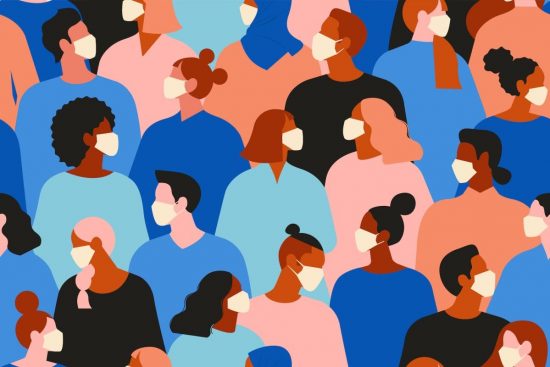Image courtesy of U.S. News & World Report
Recently, those of us participating in Global Health Law listservs received the news that, in response to the Covid-19 pandemic, the World Health Organization Global Coordination Mechanism on the Prevention and Control of Non-Communicable Diseases (GMC/NCD) had created a Technical Working Group on Covid-19 and non-communicable diseases (NCDs). Its objectives are (i) to support countries in their efforts to strengthen the design and implementation of policies to prevent and control their risk factors during the Covid-19 outbreak; and (ii) to limit the impact of the pandemic on avoidable mortality and disability for people living with NCDs.
NCDs are – unsurprisingly – those diseases not transmissible from one person to another, as opposed to infectious diseases. Though such concepts seem almost diametrical, Dr. Gostin (in his book Global Health Law, p. 385) explains that they are really interrelated: “[a]lthough we often categorize infectious diseases and noncommunicable diseases separately, there is a complex interplay between them.” For example, he says, “NCD risk factors exacerbate infectious diseases”. The Covid-19 pandemic is shining a light on just how relevant this interplay is, given that people with preexisting NCDs, such as cardiovascular and respiratory diseases, diabetes, or cancer, appear to be more vulnerable to becoming severely ill with coronavirus.
 While everyone grows accustomed to thinking of NCDs as risk factors to Covid-19, it is interesting to note that NCDs have risk factors of their own. For instance, the World Health Organization (WHO) warns that tobacco use, unhealthy diets, the harmful use of alcohol, and physical inactivity all increase the risk of dying from NCDs. These are modifiable risk factors, meaning that tweaking them reduces or increases the risks associated with NCDs. By developing regulatory frameworks, governments have the ability to do this tweaking for the better; and, as Dr. Gostin puts it (also in Global Health Law, p. 411), “make health the easier choice rather than being agonizingly difficult”. In fact, some governments have been doing so for years, regulating products such as tobacco, alcohol, and food in order to ease the burden of NCDs. Such topics, however, have never had the public’s undivided attention.
While everyone grows accustomed to thinking of NCDs as risk factors to Covid-19, it is interesting to note that NCDs have risk factors of their own. For instance, the World Health Organization (WHO) warns that tobacco use, unhealthy diets, the harmful use of alcohol, and physical inactivity all increase the risk of dying from NCDs. These are modifiable risk factors, meaning that tweaking them reduces or increases the risks associated with NCDs. By developing regulatory frameworks, governments have the ability to do this tweaking for the better; and, as Dr. Gostin puts it (also in Global Health Law, p. 411), “make health the easier choice rather than being agonizingly difficult”. In fact, some governments have been doing so for years, regulating products such as tobacco, alcohol, and food in order to ease the burden of NCDs. Such topics, however, have never had the public’s undivided attention.
This is perfectly understandable. The dramatic situation in which people from all over the globe currently find themselves exemplifies why global health governance has historically focused on infectious diseases. Pandemics such as Covid-19 have the power to claim a lot of lives, radically change lifestyles, and literally bring economies to a halt – all of this in a matter of weeks. It is terrifying. However, while the world grapples with the effects of Covid-19, another pandemic is also taking place. Like infectious diseases, NCDs lead to a striking number of deaths: according to the WHO, as of 2018, non-communicable diseases killed 41 million people each year, which is equivalent to 71% of all deaths globally. Moreover, NCDs too take a toll on our economies, both through rising health care costs and lost productivity. But they do so silently.
In times when the international community, national and local governments and society as a whole are engaging in the fight against Covid-19, it is important to remember the role non-communicable diseases play in this scenario; and, more importantly, that when the horrific Covid-19 pandemic is behind us, the deadly (though silent) pandemic of NCDs will persist. Then it will be important – and empowering – to remember the levels of engagement humankind is capable of in the face of threat. Hopefully, the next pandemic to be this talked about will be NCDs.



